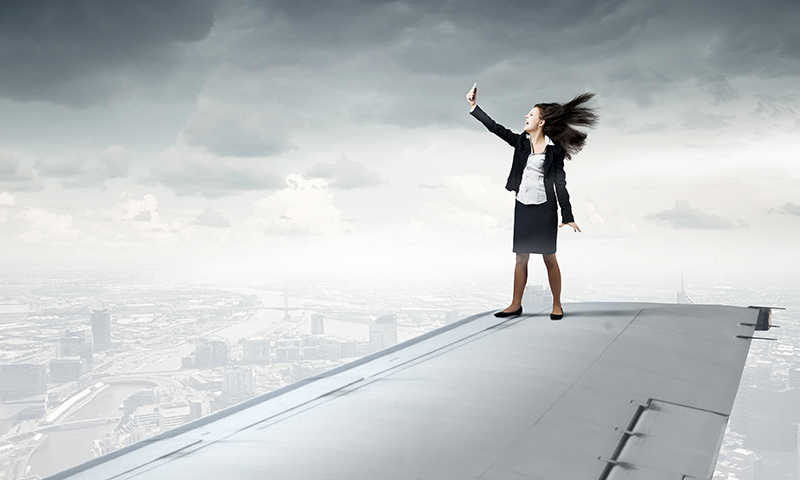
The #selfie has changed the way we experience life. Seventy-four percent of snapchat photos are selfies and 1,000 selfies are posted to Instagram every minute. The average millennial is expected to take over 25,000 selfies in their lifetime. Some people even take extreme measures trying to capture the perfect selfie. From 2011 to 2017, 259 people died while taking photos of themselves, prompting scientists to call for the creation of “no selfie zones” in tourism hotspots.
That’s a bleak statistic and begs the question, “Have we taken taking selfies too far?” Is our obsession with documenting and sharing our lives negatively affecting the way we communicate and experience life?
For some people, the answer is undoubtedly “yes”. If you’re risking your life for a selfie, you’ve prioritized impressing other people over your own safety, and that’s a misalignment of priorities. But even if you’re not risking your life, selfie culture can change the way you experience life and interact with others in negative ways if you let it. When capturing yourself experiencing an event becomes more important than actually experiencing it, you become less authentic, less engaged, and more prone to rely on responses from your social media followers to validate that you had a positive experience.
However, taking and posting selfies doesn’t have to be negative. Social media is a powerful tool that can help you document your life, share your experiences, and connect with people around the world. When social media is used in a healthy way, it can help build communities, cultivate friendships, strengthen relationships, and create awareness.
How can you use social media to create positive results for yourself and others?
- Be authentic. Think of your social media profiles as a journal of your life. Choose a few things that you really care about or would like to be known for, and let your posts reflect them. It’s ok to want your social profile to reflect the best version of yourself, but your focus should be on connecting with others, not impressing them. If you’re posting mostly beautiful images, sprinkle some “real” in there too. Being relatable triggers way more engagement than being enviable. Think about how your life, experiences, and knowledge can add value to your followers’ lives and post to serve them, not yourself.
- Engage more, scroll less. Habitual scrolling through social media is not a meaningful way to connect with others. In fact, some studies have shown an alarming association between feelings of loneliness and excessive social media usage. While it might feel relaxing and mindless, it can actually be agitating and cause you to compare false perceptions of reality to your own, triggering feelings of dissatisfaction. Engaging, rather than passively scrolling, is a much more beneficial way to use social media. Engaging through questions, DMs, and comments helps you connect with others and build relationships. If you’re more of a scroller than an active participant on social platforms, ask yourself what you’re gaining and how you can benefit more from using social media more actively.
- Be proactive about connecting in person. If you have relationships that exist mostly on social media platforms, be proactive about connecting in person, especially if the person is local. Studies show people who feel more connected are happier, and in-person connections are more valuable than online ones. You can build deeper, more meaningful relationships with people in person, making your social media connections more valuable.
- Take a break from social media. Commit to being social media free for one or two days a week, or consider taking a social media hiatus for a period of time. See how it affects your mood, productivity and interactions with others. If you find that you are happier, more productive, or more engaged when you’re not on social media, consider how you’re using it and how you can use it differently to create more positive outcomes.
- Be present. Enjoy your experiences in person. Don’t spend more time trying to capture your experience than you do enjoying it. Show up for your life, be present in your moments, and interact with the people in front of you, not the people on your phone. Your social media feed should not be used to validate yourself, it should be used to connect with others when in-person connections are not possible. Don’t miss opportunities to connect and build relationships because you’re more worried about showing your followers where you are, who you’re with, and what you’re doing.
Social media is a powerful tool that allows us to connect and build relationships with people that we otherwise might never have had the opportunity to meet. It can enrich your life and help you succeed. But if you don’t use it responsibly, its impact can be negative for you and for others. Next time you flip your camera to take a picture of yourself, think about why you’re doing it and what you and your followers stand to gain from that content. If you can answer those questions with positive responses, click away and show us you!